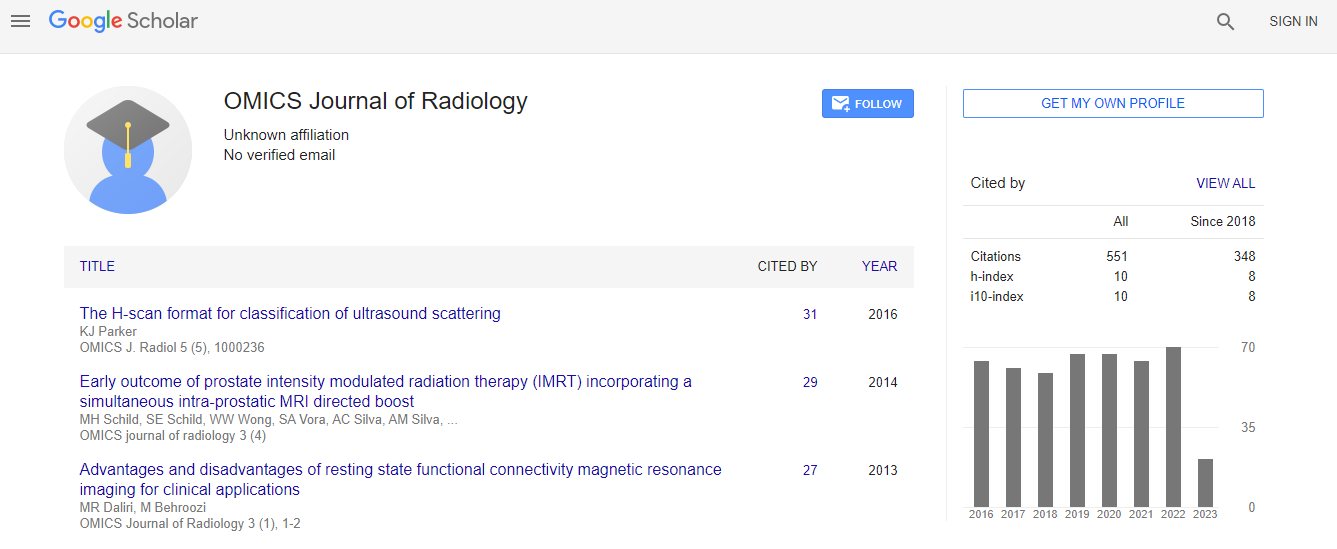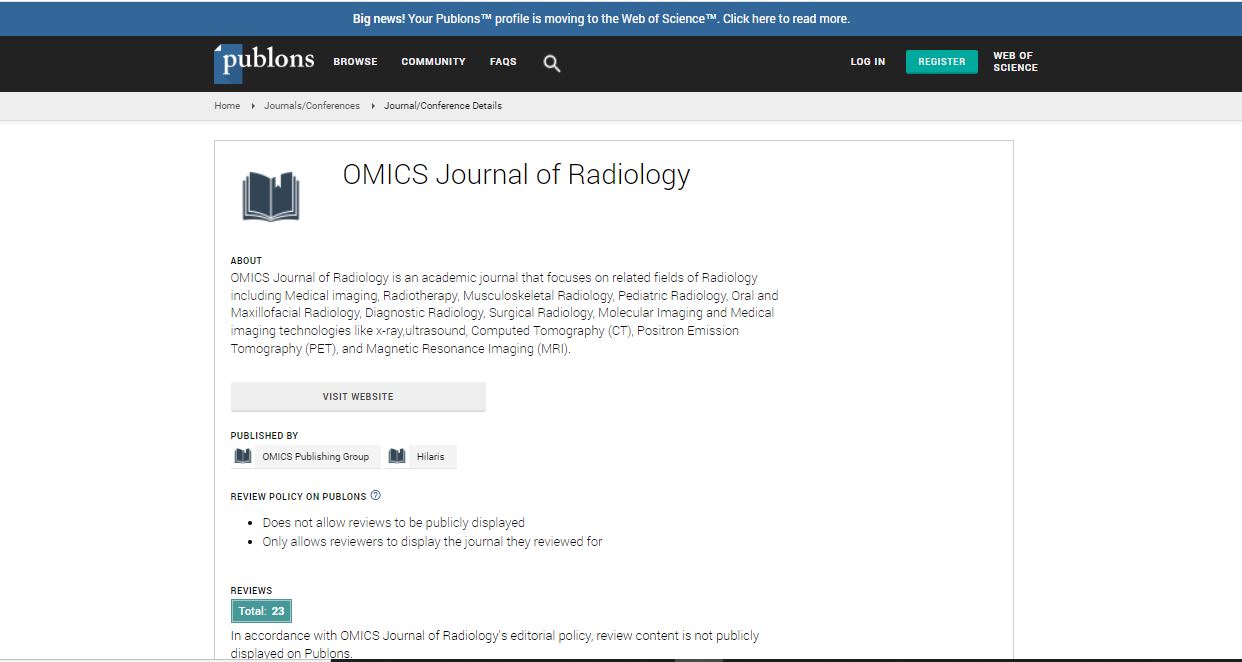Our Group organises 3000+ Global Conferenceseries Events every year across USA, Europe & Asia with support from 1000 more scientific Societies and Publishes 700+ Open Access Journals which contains over 50000 eminent personalities, reputed scientists as editorial board members.
Open Access Journals gaining more Readers and Citations
700 Journals and 15,000,000 Readers Each Journal is getting 25,000+ Readers
Google Scholar citation report
Citations : 551
Journal of Radiology received 551 citations as per Google Scholar report
Journal of Radiology peer review process verified at publons
Indexed In
- Index Copernicus
- Google Scholar
- Open J Gate
- Genamics JournalSeek
- ResearchBible
- Electronic Journals Library
- RefSeek
- Hamdard University
- EBSCO A-Z
- OCLC- WorldCat
- SWB online catalog
- Virtual Library of Biology (vifabio)
- Publons
- Geneva Foundation for Medical Education and Research
- ICMJE
Useful Links
Share This Page
Dynamic MR imaging (MR fluoroscopy): Clinical applications in pediatric radiology
International Conference on Medical Imaging & Diagnosis
Tamara Feygin
University of Pennsylvania, USA
ScientificTracks Abstracts: OMICS J Radiol
Abstract
Dynamic Cine Magnetic Resonance imaging (MR ГўВ?В?fluoroscopyГўВ?Вќ) is a rapidly developing technique, which evolves from research and works in progress into routine imaging sequences. This technique is designed to demonstrate some of the physiologic and pathologic processes of the human body in almost real time. MR ГўВ?В?fluoroscopyГўВ?Вќ offers many advantages over other dynamic imaging modalities (such as x-ray based fluoroscopy, nuclear medicine examinations or ultrasonography) due to its lack of ionized radiation and short acquisition time. These features are particularly important in pediatric and prenatal medicine. The dynamic sequences are based on fast acquisition and organization of images in a sequential-loop, resulting in an impression of observing a real-time movie. The sequences vary slightly in different manufactures but almost any sequence sensitive to flow may be employed. They are easily obtainable from a technical standpoint, and are easily tolerated by patients. These dynamic sequences prove to be valuable tools in functional assessment of intracranial/intraspinal CSF flow dynamics, evaluation of effectiveness of endoscopic procedures, esophageal or bowel motility (and almost any other type of dynamic motion in the human body); evaluation of cardiac contractility and blood flow patterns and joint mobility. Dynamic Cine MR Imaging improves our knowledge of fetal physiology, demonstrates functional impairment of fetal fluids flow dynamics; provides clinically significant prognostic information for pre and postnatal planning and contributes in very careful selection of patients eligible for fetal intervention.Biography
Tamara Feygin is an Associate Professor of Clinical Radiology in University of Pennsylvania, Perelman School of Medicine, and Staff Neuroradiologist in The Children's Hospital of Philadelphia. She led the development and implementation of magnetic resonance fluoroscopy in clinical practice for assessment of cerebral and spinal CSF flow dynamic in children and fetuses; for assessment of fetal swallowing; for evaluation of phonation in children with velopharyngeal incompetence. She is a dedicated educator and mentor of undergraduate and medical students, radiology residents, and radiology and neuroradiology fellows. She has been invited to present her work nationally and internationally. She is a member of the European Society of Neuroradiology, the Radiological Society of North America, the Society for Pediatric Radiology, and a senior member of the American Society of Neuroradiology.
Email: FEYGIN@email.chop.edu

 Spanish
Spanish  Chinese
Chinese  Russian
Russian  German
German  French
French  Japanese
Japanese  Portuguese
Portuguese  Hindi
Hindi 
